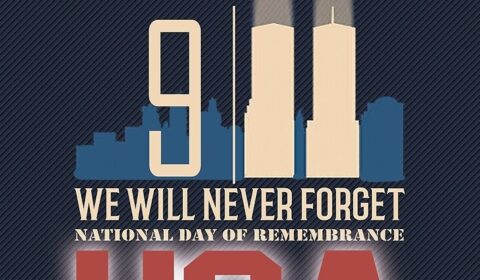REMEMBERING 9/11: WHAT WAS IT ALL ABOUT FOR 158 CANADIANS?
TARA COLLUM | Contributing columnist
There wasn’t a cloud in the sky Sept. 11, 2001.
I made it all the way to school before I heard one word about it.
A girl asked me if I was following the news, about planes attacking the World Trade Centre towers in New York City.
I thought her question was strange, if something like that were happening how could I have a choice not to follow it?
But I didn’t know what building she meant, or what type of airplanes.
Then the teacher came in, and said the Americans might start World War 3.
TVs were set up in the hallway and the screens showed thick blankets of black smoke. They sent us home early.
And for the first and last time in my life someone handed me a special edition afternoon paper.
My roommate and I watched all the news footage that people had been unable to turn off since breakfast.
It was the early days of the 24-hour news cycle and the stories and images of once familiar landscapes reduced to grey ash and rubble were non-stop.
I can’t even imagine what it would have been like to have also had social media documenting that typical late summer day that suddenly changed into one you would always have to remember.
It’s strange how in Canada, our days like that are often caused by American events.
For my parents it was the day JFK (U.S. President John Fitzgerald Kennedy) was assassinated.

Sept. 11 felt a strange feeling for the Americans — like our countries were family. And out of obligation — or something — Canada followed the U.S. into a war zone. We joined an international coalition to destroy the al-Qaeda terrorist network and the Taliban.
From 2001 to 2014, the Canadian Armed Forces fought in Afghanistan, in one of the toughest regions, Kandahar. And 158 Canadians lost their lives. Their bodies were first returned to Trenton’s CFB base, and then taken along Hwy. 401 for a journey of heroes back to their families. Many people would gather to greet the procession, and hold signs or wave flags. They renamed the stretch the Highway of Heroes. The band the Trews wrote a song about it, and two million trees are being planted in memory.
One of the fundamental differences between our two countries is the U.S. has been rocked by revolution and civil war, while Canada has historically taken on the role of peacekeeper.
When domestic terrorists stormed the American capitol last winter, I couldn’t watch. It felt like a horror movie. A country tearing itself apart is much different than one being attacked by an enemy from afar.
America for whatever reason has decided that 20 years after 9/11 is the moment to withdraw from Afghanistan, and the world is watching helplessly as the Taliban sweep to power plunging the country into chaos.
During times of crisis, a familiar picture always pops up on social media feeds, Mr. Rogers smiling in his cardigan alongside the aphorism: “When I was a boy and I would see scary things in the news, my mother would say to me, ‘Look for the helpers. You will always find people who are helping.’”
As the international community is struggling to safely evacuate and relocate refugees, I try to focus on people who are helping, like the organization Women for Afghan Women. And one woman, Allyson Reneau, a mother from Oklahoma who rushed to the region to help rescue members of the Afghan girl’s robotics team.
What is our responsibility to other nations? That’s tougher to answer in today’s climate when the social fabric is being stretched to the point of seemingly breaking down.
I know I’m being a broken record here, but, over masks, and protecting each other during a global pandemic?
If someone intervened in the first place, what should their obligations be? How long should other countries try to keep a war-torn region stable? How many refugees should we take in during times of humanitarian crisis?
One of the lasting scars of 9/11 is rampant Islamophobia, and discrimination against Muslims. Extremist groups like the Taliban do not represent a religion that is practiced peacefully by almost two billion people. Fear and misinformation over the customs and beliefs of others can not be used as barriers to escaping our accountability to help others.
When deciding how to best help the people of Afghanistan, there is one important perspective to consider.
The 158 Canadians who died fighting there.
What did they die for? What would they want us to do?

